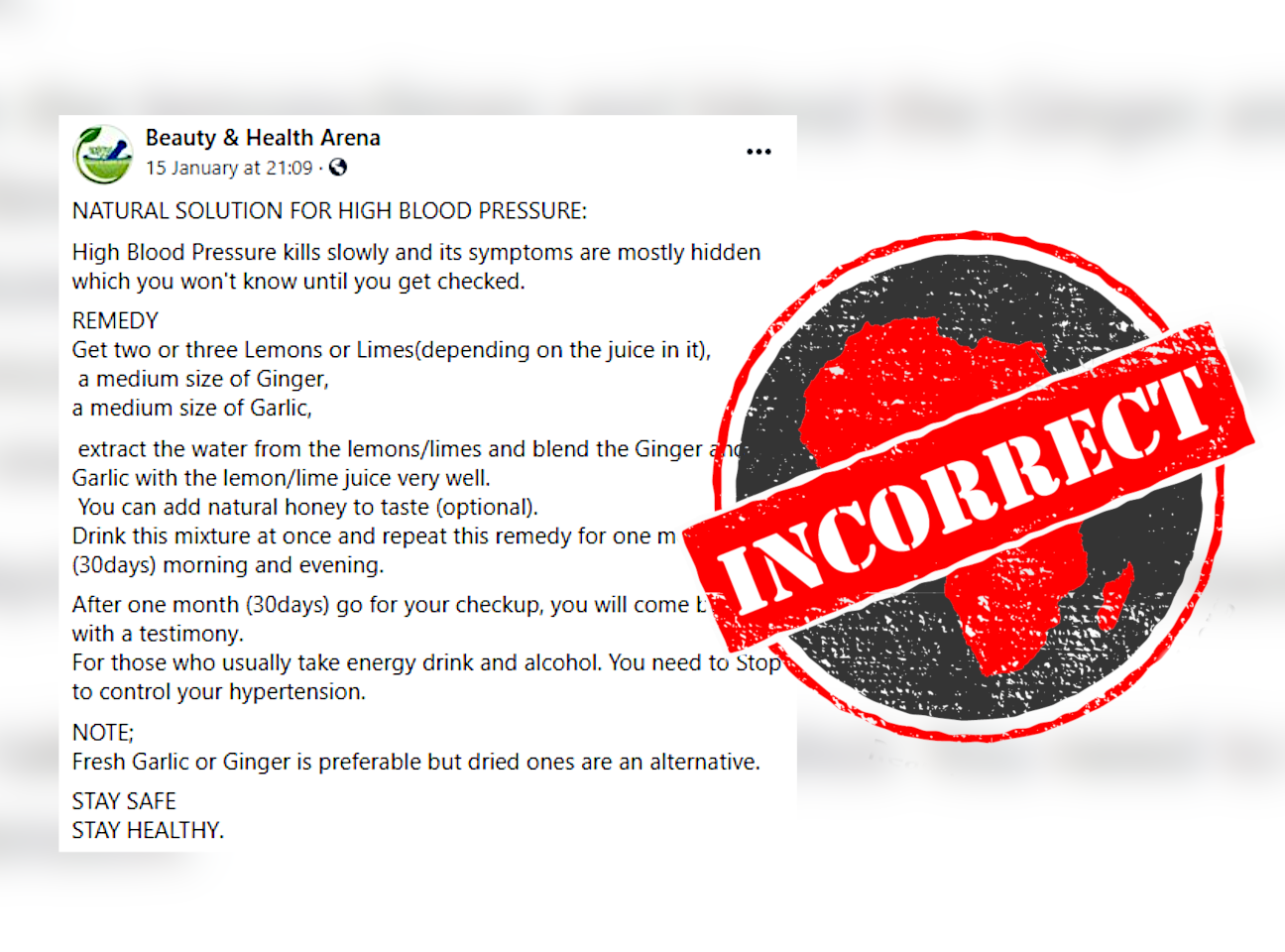“Natural solution for high blood pressure,” reads the headline of a Facebook post shared in Nigeria.
The post claims lemon, ginger and garlic steeped in hot water and drunk twice daily is a remedy for high blood pressure.
“You can add natural honey to taste (optional). Drink this mixture at once and repeat this remedy for one month (30days) morning and evening. After one month (30days) go for your checkup, you will come back with a testimony.”
But will this remedy really treat high blood pressure?

‘No single solution’
High or raised blood pressure, known as hypertension, is a condition in which the blood vessels have persistently raised pressure. High blood pressure is a severe medical condition and can increase the risk of several ailments including heart, brain and kidney disease.
The World Health Organization says hypertension is a significant cause of premature death worldwide.
Lifestyle changes such as eating a healthy diet that limits salt and alcohol are some ways to lower high blood pressure.
“Lemon, ginger and garlic is not a remedy for high blood pressure,” Patrick Igbigbi, a human anatomy professor at Nigeria’s Delta State University college of health sciences, told Africa Check.
“There is no single solution to high blood pressure. Most times, we advise anyone battling high blood pressure to change their diet and lifestyle. These are effective in managing high blood pressure.
“But advising people to consume a mixture [of household ingredients] to treat high blood pressure is wrong. The mixture won’t work. Go to a hospital if you feel unwell and follow the medical advice prescribed by a doctor."
Republish our content for free
For publishers: what to do if your post is rated false
A fact-checker has rated your Facebook or Instagram post as “false”, “altered”, “partly false” or “missing context”. This could have serious consequences. What do you do?
Click on our guide for the steps you should follow.
Publishers guideAfrica Check teams up with Facebook
Africa Check is a partner in Meta's third-party fact-checking programme to help stop the spread of false information on social media.
The content we rate as “false” will be downgraded on Facebook and Instagram. This means fewer people will see it.
You can also help identify false information on Facebook. This guide explains how.


Add new comment